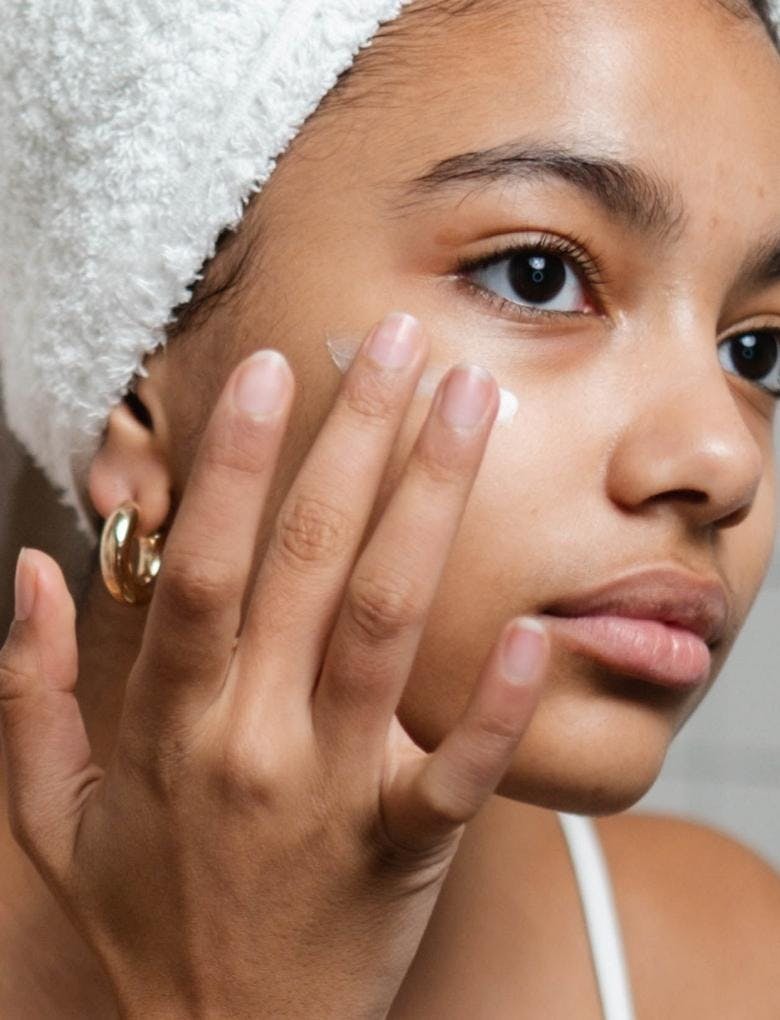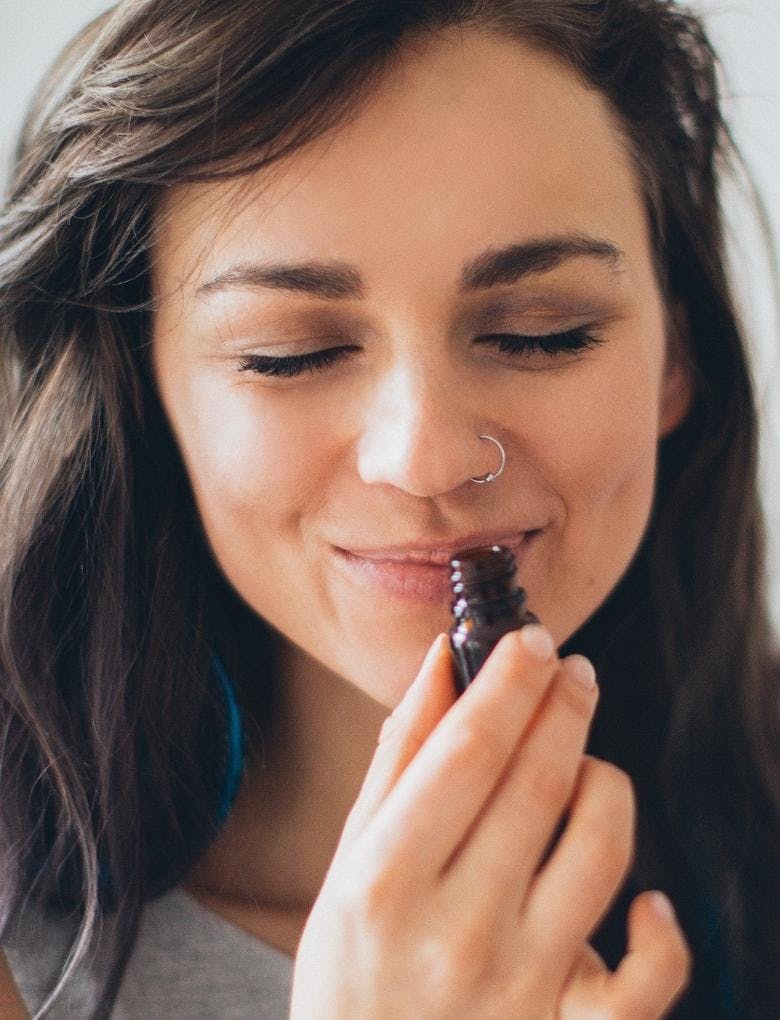Is Fragrance-Free Skincare Really Better For You?
6 minutes read
The subject of fragrance-free skincare is a much-debated one. Over the last few years, the internet’s skincare community has turned against several ingredients that have been used in skincare formulations for decades. In some cases, there’s enough evidence to back these claims. But in others, the lines are a little blurry and even expert opinions differ. Fragrance seems to fall in the latter category.
When it comes to skincare, there is often no simple answer. So, we consulted the pros to understand the function of fragrance in skincare and whether it should be avoided.
What does the ‘fragrance-free’ label really mean?
“In theory, if something is claiming to be ‘fragrance-free’, it means that no chemicals have been added to the product with the purpose of giving it a specific scent,” says board-certified dermatologist Dr Mona Mislankar.
She adds: “While some companies use the term loosely, the label should ideally indicate that no synthetic scent ingredients have been used. This does not rule out the possibility of the product having a scent. Other ingredients may have natural smells that will come through.”

Why are so many people afraid of fragrance in skincare?
Fragrance has been used in formulations for over-the-counter skincare, cosmetics and personal hygiene products for years. But at when did they become a talking point?
It started in 2007 when the American Contact Dermatitis Society (ACDS) labelled it the Allergen of the Year. Various beauty brands that were founded after this began eliminating them from their products. And, of course, the ‘clean beauty’ movement took off, and fragrance got labelled as the enemy of good skin.
So, is fragrance-free skincare better for your skin?
“Fragrance-free does not necessarily indicate that a product is better or more effective,” says Dr Mislankar.
However, certain conditions are definitely triggered by scented skincare. “Fragrance has been linked to a variety of conditions such as allergic contact dermatitis, irritant contact dermatitis, photosensitivity, or urticaria. It can be rather irritating for people prone to these conditions,” Dr Mislankar explains.
For the rest of us, it’s a little more subjective. Not all fragrances are made equally and there is a large variety of ingredients that can be used to scent a product. Some come from natural sources, while others are synthetically made.
“A natural fragrance is an essential oil which naturally occurs from plant sources,” explains Nausheen Qureshi, skincare biochemist and cosmetic scientist. “Synthetic fragrances are man-made molecules. They don’t add much efficacy to a formulation. Either are used in skincare; it depends on the brand and their ethos.”
“You could argue that natural fragrances have a higher chance of being an allergen than a synthetic fragrance,” says Charlotte McHale, Clarins Training Manager. “That’s because synthetic ones have been created to be used on skin. But a lot of people tend to prefer natural ingredients. The word ‘synthetic’ sounds scary.”
In reality, you could be allergic to them all, or just some specific ones (like lavender, for instance) or none. It’s all very relative to your particular skin type. “It’s the same as avoiding a food you’re allergic to,” McHale points out.
When to choose fragrance-free skincare
Opinions on this differ. Qureshi says, “As a cosmetic biochemist who designs skincare products for clients, I believe that skincare products are less irritating for the skin and therefore perform better without fragrance.”
On the other hand, Dr Mislankar believes that “not all fragrance is bad, and not everyone has to avoid fragrance in their products.”
She elaborates: “You only need to be concerned if you have a compromised skin barrier. Patients with skin conditions such as atopic dermatitis or rosacea, and occasionally psoriasis can be more sensitive to many different irritants and allergens, including fragrance. For these patients, I often recommended finding fragrance-free products.”
If you’re prone to allergic or irritant reactions, a leave-on product like a serum or moisturiser could be more likely to cause a reaction due to longer contact with the skin, compared to a cleanser which you will wash off immediately.
Are you experiencing a reaction?
The best way to understand if you are allergic to the scent of a certain product is to do a patch test. This is why we recommend getting yourself a sample of the product you want before committing to the entire bottle. You can pick up samples of products you’re interested in at any Clarins counter.
If your skin is reactive, simply choosing fragrance-free may not solve all your problems. As Dr Mislankar explains, “A product could contain so many potential allergens and irritants such as numerous preservatives (often added to skincare and cosmetics to uphold freshness), certain stabilisers of an ingredient, etc. So that limited wording of ‘fragrance-free’ does not tell us much. It only reveals the fact that fragrance has not been added to the product.”
Unscented vs fragrance-free
You may have noticed that certain skincare products are labelled as ‘unscented’ rather than fragrance-free, and most consumers assume those terms are interchangeable. However, that’s not true.
“Fragrance-free means no perfumes (synthetic or natural like essential oils) were added,” says Qureshi. Unscented products, on the other hand, include specific ingredients that are there to mask other odours in the product.
She explains: “Sometimes the raw materials we use in products have an unpleasant odour, such as algae and seaweed. To mask the scent, we use scent-neutralising actives or techniques. I would call this unscented.”

When fragrance in skincare can be useful
Our sense of smell is powerful and can motivate us to stick to certain habits or put off certain tasks. So, use fragrance to your benefit.
“Many people enjoy the sensorial feel that fragrance can add to their skincare routines, making them more likely to use the product and stick to a routine,” says Dr Mislankar. “Therefore, unless there is a reason to avoid fragrance, I do not make a blanket statement to my patients to avoid all fragrance.”
Similarly, McHale says, “The first thing I do when I try a new product is smell it. And sometimes, that’s a deciding factor in whether I want to try a product or not. But some people don’t enjoy a fragranced product, so it’s also about preference.”
She adds: “A lot of the feedback we get from our customers is about scent, and how they particularly love the scent of a certain product.”
Even Qureshi, who doesn’t believe in formulating skincare with fragrance, agrees that scent does have a place in skincare for people who enjoy it.
“The customer buys skincare products for feel-good reasons and an uplifting scent plays a huge part in this,” she says. “For example, scented shower gels and body lotions make people feel better and cleaner and there are noted psychological benefits from scented products.”
The verdict
When we spend our money on premium skincare, it’s fair for many of us to expect an all-around luxurious experience. And the fragrance is an important part of that.
The bottom line? If you enjoy a bit of aromatherapy and don’t find your skin reacting badly to a delicious-smelling product, go right ahead and enjoy the experience. On the other hand, if you have a compromised skin barrier and need to focus on tackling that first, fragrance-free could be for you.
Understanding what your skin (and olfactory senses) likes and dislikes is the only way to decide what’s right for you.
Next reads: Why High-Altitude Ingredients Make A Difference
Sign up for our newsletter
We will keep you in the loop for special offers, exclusive gifts and product news.

